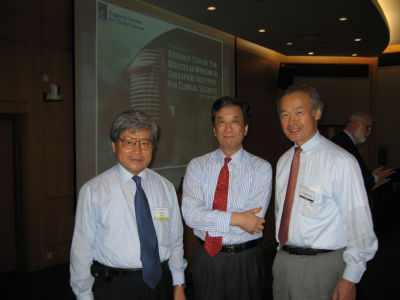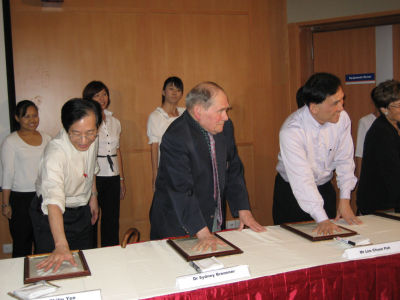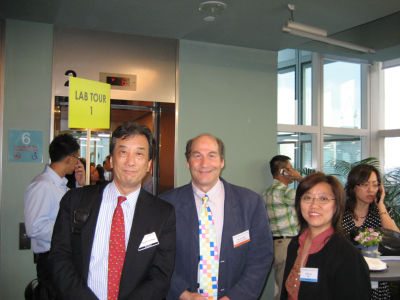黒川 清
内閣特別顧問・前日本学術会議会長
|
KIYOSHI KUROKAWA
The Cabinet's Special Adviser, Former President of the Science
Council of Japan
|
|
学術の風
Singaporeから 07/04/20
http://dndi.jp/14-kurokawa/kurokawa_x34.php
From Singapore
2007/04/20
On April 17th, I was invited by the Foreign Correspondents' Club of Japan (FCCJ) and spoke about Innovation 25. You can read the press conference in the website of the FCCJ (I think you can see the video soon, as well). In advance of the press conference, my interview was inserted in Science (April 13th issue), so I handed out the article with English translation of Innovation 25. I found the English interviews were easier than those in Japanese, because English, as a language (and any language), reflects the culture behind it, thus you do not need to carefully choose so many wordings based upon whom you are speaking. As I have been saying, if I speak in Japanese, I speak with reservation and spend so much energy choosing words that are appropriate for whom I am talking to and their social states and often cannot speak honestly and frankly to express my true feelings.
On the 19th, I went to Singapore. Singapore is one of the most rapidly growing and dynamically changing Asian nations. The purpose of this visit was to attend my first meeting as the Member of the Board of A*STAR, the center of the biotechnology policy planning on the 20th. The meeting was held in the Biopolis which was built in just 18 months. Up until now, Mr. Philip Yao was leading the scientific policy and his work had received wide attention in the world. Mr. Yao has great leadership as well as and has successfully built on an incredible list of leading scientists of the world. He has a clear vision as a political leader, is decisive, has great managerial ability and as such, the government has put strong faith in him. From now on, Mr. Lim Chuan Poh, Permanent Secretary for Ministry of Education will become A*STAR's chairman and Mr. Yao will work for new entrepreneurial businesses. Thinking creatively, working hard and quick decision-making are the hallmark of this small government of city nation (population is four million). Singapore is promoting a national policy of improving human resources development, which focuses on young people's education and internationalization as the center focus of a long-term strategy. Efficient government and an improved social system are significant factors that make Singapore one of the most well regarded innovative countries in the world. Picture 1 is with Dr. Tachi Yamada, one of the board members (He is my friend from UCLA and is Director Global Health Initiative of the Gates Foundation, thus travels all over the world) and Dr. Yoshiaaki Ito, former professor of Kyoto University and the former Director of the Institute for Virus Research, who currently works at Biopolis. I hope many people take an active role in the world like Dr. Ito.

Picture 1: From the left, Dr.Ito, Myself and Mr. Yamada
In addition, at the National University Hospital, the opening ceremony of the Molecular Biology Clinical Institute built in commemoration of Dr. Sydney Brenner was held and I had a good time there. (Picture 2) The institute was remodeled by Mr. Ken Kornberg, an architect who was also involved in designing Okinawa Institute of Science and Technology, and it was nicely done. Mr. Ken Kornberg is the son of Dr. Arthur Kornberg who won a Nobel Prize and his brother also won a Nobel Prize in Chemistry. I think Mr. Kornberg is the third case in which parent and child both won Nobel Prizes. One of the cases was Madame Curie and her daughter, Dr. Joliot Curie. I think you can understand how great they are.
Now Singapore is bursting with vitality.

Picture 2: At the opening ceremony of Brenner Institute. From left Mr. Yeo, Dr. Brenner and Mr. Lim, Chairman

Picture 3: With Mr. Ken Kornberg, architect
K.K.
|

